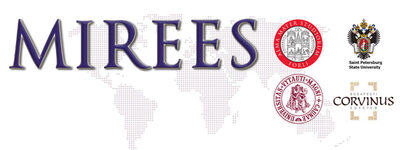and Balkan Europe
by IECOB & AIS Università di Bologna

2016 Transparency International School on Integrity (TISI)

Written by Nikita Lobanov, BA
MIREES’ student, University of Bologna, Forlì-Campus
From the 4th to 10th of July of 2016, the Transparency International School on Integrity (TISI), an annual state-of-the-art anti-corruption and accountability training for future leaders in Vilnius, Lithuania, took place. TISI exposes its participants to the latest developments in the field of anti-corruption and accountability and offers real opportunities to try and implement their ideas in practice. This summer school seeks to create a peer-to-peer learning and integrity-building environment that links theory with practice, and helps young leaders acquire better skills in bringing the anti-corruption message across. School lectures, seminars, training and field trips provide TISI participants with a unique blend of international and local know-how, while also challenging them to approach the subject from outside the box and offer novel, previously untested but highly creative, solutions.
It is safe to affirm that the Summer School works similarly to a “Transparent Valley” process helping to innovate the anti-corruption field of research. Since 2010, TISI has welcomed more than 700 youth leaders from around 90 countries worldwide. This time in 2016, 100 young persons from 60 countries were present which contributed to the creativity of the participants. The words of Frank Vogl, Co-Founder of Transparency International with Peter Eigel, his colleague at the World Bank, who was the first lecturer, describe the aims of this work: “We need to look at our challenge by first asking a basic question: Why should a civilization that has put a man on the moon, that has the technological skills to create weapons of mass destruction, be unable to ensure that every person in the world has the opportunity to live a life of dignity – a life free of extortion, with decent housing, sanitation, education and work”?
Political science in the 21th century cannot avoid the question of corruption. Corruption is the first reason for our, Western, failures: Afghanistan and Iraq campaigns, the fight against poverty, providing completely clean energy to households, weapons in the United States etc. On the contrary, in Post-Soviet Macro Region, its most successful country, Estonia, has the most open media in the world! Therefore, its journalists and population can immediately address corruption issues. On the other hand in Russia, as Elena Panfilova explained, corruption is a psychological “bacteria” which completely pervades the society. The abuse of public office and entrusted powers offers possibilities and the “societal game” is about control – in Kremlin and in the regions. Moreover, she underlined the peer pressure, ironically enough, in the security organizations such as the police.
There were many interesting stories during the Summer School. I especially liked the exchange with Cobus de Swardt from South Africa, the Managing Director of TI, Chair of the International Civil Society Centre, member of the Board of the UN Global Compact and the International Integrated Reporting Council. Cobus underlined in his speech that difficult and honest questions is exactly what our societies needs. His record, especially his time spent in jail because of fighting against apartheid, in this sense is truly remarkable. Every battle can be won without heroes, just by being good citizens. I had the occasion to ask madam President of Lithuania Dalia Grybauskaitė the day before the Warsaw Summit about the understanding of “Putin’s Russia”, the term used, and the deterrence as a common security issue. The second question was about the Estonian case, as a successful neighbor. President Grybauskaitė frankly addressed my question admitting that successes have to be studied while there is always the need to engage with one’s neighbor, be it Brussels or Russia.
PECOB: Portal on Central Eastern and Balkan Europe - University of Bologna - 1, S. Giovanni Bosco - Faenza - Italy
Chiudi la versione stampabile della pagina e ritorna al sito.
 Download "2016 Transparency International School on Integrity (TISI)"
Download "2016 Transparency International School on Integrity (TISI)"